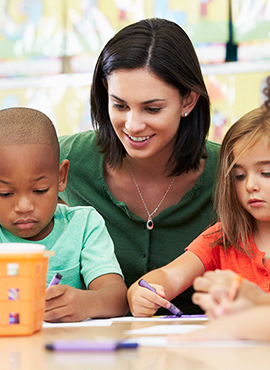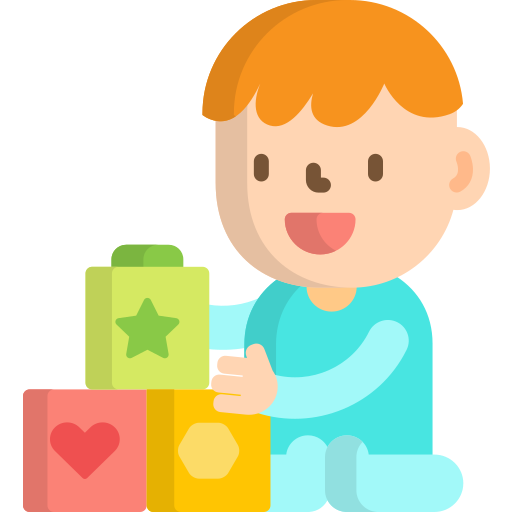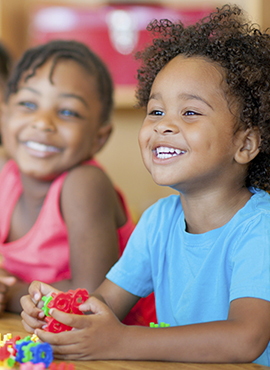Our Partnership With Parents
At Positive Steps Childcare, we believe that a strong partnership with parents is essential in helping children excel both within the Early Years Foundation Stage (EYFS) framework and beyond. We strictly adhere to the EYFS guidelines, ensuring that every aspect of your child’s development is supported. However, our commitment doesn’t stop there. We actively collaborate with parents, regularly sharing insights and gathering feedback to create a cohesive learning environment that bridges home and nursery. This includes discussing health and safety standards, maintaining meticulous records of your child’s progress, and involving you in personalized learning plans.
In addition, we are committed to transparency and accountability in our relationship with parents. We have a clear and accessible complaints procedure in line with Ofsted requirements, ensuring any concerns are addressed promptly and effectively. By working together, we aim to provide not only a safe and nurturing environment but also one that exceeds standard requirements, preparing your child for a bright and successful future.
X





over 20 years experience
Settling your little ones in
At Positive Steps Childcare, we understand that starting nursery is a significant milestone for both you and your child. With over 20 years of experience in the field, we’ve successfully settled in thousands of children, ensuring they feel secure and happy as they transition into our care. Our personalized settling-in process starts with a meet-and-greet session where you and your child can get to know their key worker, followed by gradual settling-in sessions tailored to your child’s comfort. We work closely with you to mirror your child’s routine, providing continuity and reassurance every step of the way. Our goal is to make this transition as smooth and comforting as possible for your family.
Our curriculums
Personal, Social, and Emotional Development (PSED)
- Babies (0-12 months)
- Bonding Time: Engage in regular one-on-one time to build trust.
- Peek-a-Boo: Develops understanding of object permanence and social interaction.
- Mirror Play: Encourages self-recognition.
- Toddlers (1-3 years)
- Sharing Games: Introduce turn-taking and sharing with simple games.
- Emotions Play: Use dolls or puppets to express and recognize emotions.
- Routine Activities: Help toddlers understand daily routines and responsibility.
- Preschoolers (3-5 years)
- Group Play: Encourage cooperation and teamwork through group activities.
- Emotion Discussions: Facilitate conversations about feelings and emotions.
- Responsibility Tasks: Assign simple jobs like tidying up to build confidence and independence.
Physical Development (PD)
- Babies (0-12 months)
- Tummy Time: Strengthen neck and upper body muscles.
- Grasping Toys: Encourage fine motor skills development through gripping and holding toys.
- Crawling Encouragement: Provide safe spaces for babies to crawl and explore.
- Toddlers (1-3 years)
- Climbing and Running: Create safe environments for gross motor skill development.
- Finger Painting: Develop fine motor skills through creative activities.
- Simple Puzzles: Enhance hand-eye coordination with age-appropriate puzzles.
- Preschoolers (3-5 years)
- Obstacle Courses: Develop balance, coordination, and physical strength.
- Cutting and Pasting: Use scissors and glue to improve fine motor skills.
- Healthy Eating Discussions: Introduce the concept of healthy food choices and their impact on the body.
Communication and Language (CL)
- Babies (0-12 months)
- Singing Nursery Rhymes: Introduce rhythm and melody of language through songs.
- Talking Time: Caregivers narrate daily activities to expose babies to language.
- Reading Simple Books: Engage in reading to develop listening and language skills.
- Toddlers (1-3 years)
- Storytelling: Encourage toddlers to listen to and engage with simple stories.
- Sing-Along Sessions: Use songs to develop language skills and memory.
- Role Play: Introduce imaginative play using everyday items to build communication skills.
- Preschoolers (3-5 years)
- Storytelling Sessions: Encourage children to create and tell their own stories.
- Role-Playing: Act out scenarios or favorite stories to enhance language development.
- Listening Games: Engage in games that require following instructions and responding to cues.
Literacy
- Babies (0-12 months)
- Soft Fabric Books: Introduce books with different textures for sensory exploration.
- Storytime: Daily reading of simple picture books to expose babies to language patterns.
- Toddlers (1-3 years)
- Letter Blocks: Use alphabet blocks to introduce letters and early literacy concepts.
- Picture Books: Identify objects and characters in books to build vocabulary.
- Preschoolers (3-5 years)
- Phonics Games: Engage in sound and letter matching activities.
- Story Creation: Encourage children to draw and write simple stories to express creativity and practice writing.
Mathematics
- Babies (0-12 months)
- Counting Games: Introduce counting through simple activities using fingers or toys.
- Stacking Toys: Help babies understand size and order by stacking rings or blocks.
- Toddlers (1-3 years)
- Counting Objects: Count toys or household items to develop early number recognition.
- Shape Sorting: Introduce basic shapes and sorting activities.
- Preschoolers (3-5 years)
- Counting and Sorting: Encourage counting and sorting by size, color, or type.
- Simple Addition/Subtraction: Use objects to introduce basic math operations in a tangible way.
Understanding the world (UD)
- Babies (0-12 months)
- Outdoor Walks: Engage babies with sensory experiences in nature.
- Family Photos: Use family pictures to help babies recognize familiar faces and understand relationships.
- Toddlers (1-3 years)
- Nature Walks: Collect leaves, stones, or other natural objects to explore the environment.
- Family and Friends: Talk about and identify people who are important in their lives.
- Preschoolers (3-5 years)
- Simple Science Experiments: Introduce basic scientific concepts like cause and effect through hands-on activities.
- Cultural Celebrations: Learn about different cultures and traditions through stories, activities, and discussions.
Expressive Arts and Design (EAD)
- Babies (0-12 months)
- Textured Toys: Provide toys with various textures to stimulate sensory exploration.
- Music Time: Play different types of music to expose babies to varied rhythms and sounds.
- Toddlers (1-3 years)
- Drawing and Coloring: Encourage creativity with simple art activities.
- Music and Dance: Introduce movement to music, fostering rhythm and expression.
- Preschoolers (3-5 years)
- Art Projects: Engage in more complex art activities using different materials and techniques.
- Music Composition: Encourage children to create their own simple songs or rhythms, enhancing creative expression.



















